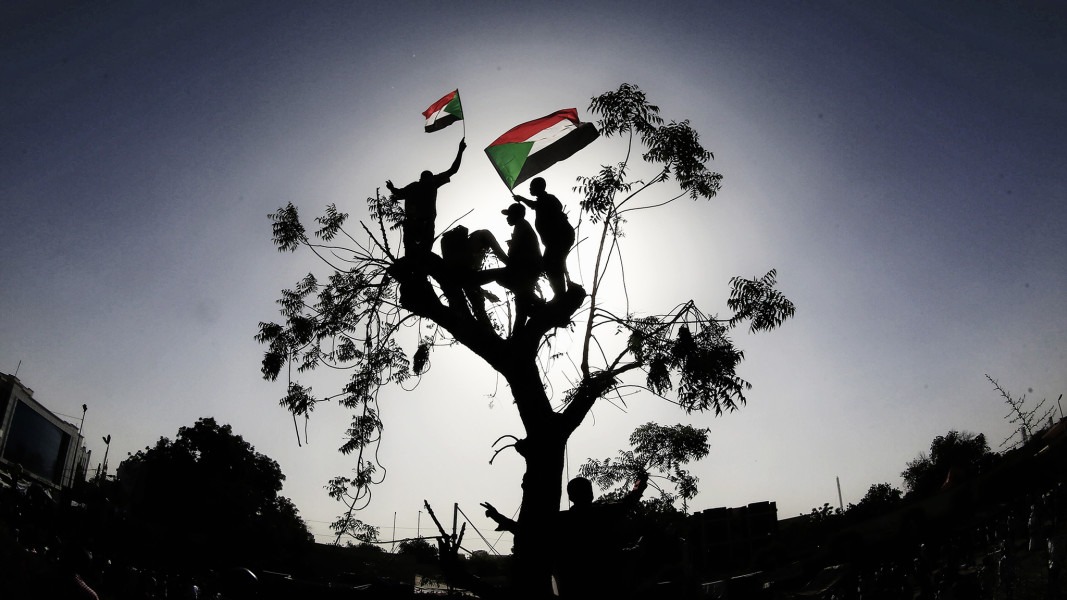Sudan’s popular protests began on December 19, 2018, due to an increase in bread prices, but the protests quickly assumed political color and protesters called for the overthrow of Omar al-Bashir government. Al-Bashir was eventually overthrown on April 11 in a military coup; after this, the Sudanese army assumed power through the formation of a “transitional military council” headed by General Abdel Fattah al-Burhan. But the overthrow of al-Bashir did not satisfy Sudanese opposition groups, and they still demand the withdrawal of troops and the peaceful transfer of power to a civilian council and the formation of a democratic government.
Indeed, given the fact that the expiry date of Omar Hassan al-Bashir, former Sudanese president who came to power with a military coup and ruled undemocratically for 30 years in Sudan, had arrived, the United States sacked Omar al-Bashir upon a signal of Saudi Arabia and the UAE and brought a military council to power in the country. With this dismissal, it can be said that al-Bashir’s mission in dividing Sudan and suppressing freedom lovers came to an end.
But the experience of Sudan over the past six decades has shown that the military has always been in ambush to take over and have never tolerated civilian rules. Sudan’s history shows that civilians have come to power only for a short period under Sadegh al-Mahdi and Hassan al-Turabi who were eventually overthrown by a military coup. Therefore, the military always seeks to have sovereignty.
The situation in Sudan can be compared to the situation in Egypt. That is, in Sudan, like Egypt, civilians could not run the country independent of the armed forces. In Egypt, the civilians led by Mohamed Morsi were in power only once and for a period of one year and were eventually overthrown by Abdel Fattah al-Sisi. A similar situation is currently in effect in Sudan.
Since 1956, when Sudan became independent, the military has always been in power. Now, after the overthrow of Omar al-Bashir, the currents of “freedom” and “change” intend to sack the military and bring civilians to power by holding free elections.
But the killing of 130 people during the army’s invasion of popular gatherings in Sudan showed that military forces are always seeking power.
Meanwhile, after four months of talks, rallies, and protests in Sudan and upon a mediation effort by Ethiopia, the civilians and the army held lengthy discussions and signed an agreement on the transfer of power whereby the military will hand over power to the civilians within a specific time framework. But all the indications and shreds of evidence suggest that the military would never transfer power to the civilians and they are always skeptical about such a power transfer.
Under these conditions, the possibility of power transfer to civilians and the formation of a democratic government in Sudan is very far-fetched; the only possible thing is for a democratic government to take over for a short period of time which would not last more than one or two years.
In fact, whenever people are tired of the military and hold demonstrations, the military would give the civilians a chance to take over in appearance but eventually they would overthrow the popular establishment with a military coup.
Meanwhile, Saudi Arabia and the UAE have played a major role in the events in North Africa, such as Tunisia, Egypt, Sudan and Libya in recent years, and this is one of the problems the Arab world faces now. That is two rich but despotic regimes like the UAE and Saudi Arabia, are trying to change the systems in Arab countries and install their own people to serve their own interests.
This suggests that the situation in North Africa is always a function of the will of rich states. In this regard, Muammar Gaddafi (former Libyan dictator) was quite accurate when he said the problem of the North African states is that the big Arab countries of North Africa beg from small Arab states. Because the economic conditions of North African countries are such that they always need financial assistance of the rich and small countries of the Persian Gulf.










0 Comments